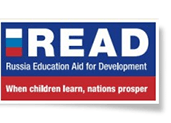The main objective of the research is to analyze the relationship between the development of cognitive skills and approaches to the teaching of mathematics in elementary school to determine the most effective practices.
The research will be conducted in close cooperation with the teams of the National Center for Evaluation and Testing under the Government of the Republic of Armenia, the National Testing Center of the Ministry of Education and Science of the Kyrgyz Republic, and the National Testing Center under the President of the Republic of Tajikistan.
Participation of local experts in a joint international project provides opportunities to build their expert capacity, forms experienced national teams for conducting international research on the quality of education and stimulates knowledge and experience sharing.
IRSA objectives:
- To assess the level of development of the cognitive skills of elementary school students;
- To develop a methodology for determining the most effective approaches to teaching and learning using the Tool for Diagnosing Teaching Practices;
- To determine the impact of variable contexts of learning through the collection of contextual information about the socio-economic situation and cultural environment of students in the family and at school;
- To fill in data gaps and collect information on the state of educational systems of research countries for the needs of all stakeholders, including international organizations and donor agencies.
The research applies tools and methods for assessing the quality of education, developed in the first and second stage of the READ program: Student Achievement Monitoring (SAM) accompanied by contextual questionnaire, Tool for Diagnosing Teaching Practices (TDTP) and Methodology of analysis and comparison of Math textbooks used in primary schools.
IRSA will be conducted in Armenia, Belarus, Kyrgyzstan, Russia and Tajikistan with a sampling of 5000 students of primary school in 2019.






